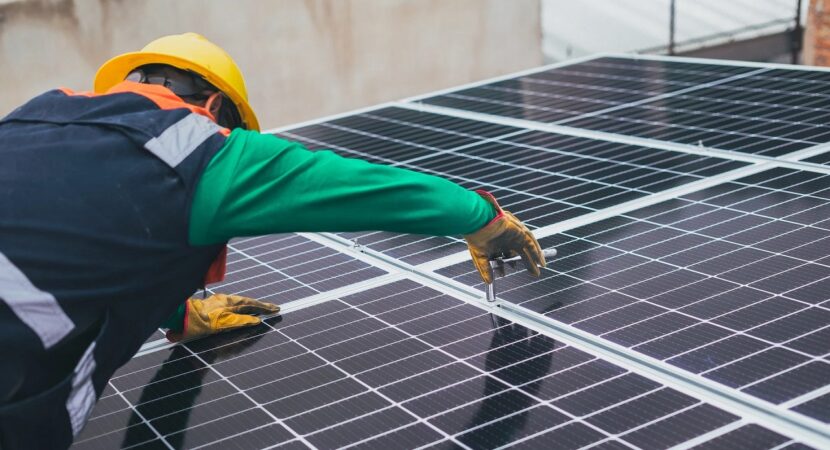
Deputy Beto Pereira presented a new bill with the objective of promoting the generation of solar energy without the incidence of taxes for consumers. This project complies with the new legal framework that was established in the country in January of this year.
O Draft Legislative Decree (PDL) No. 65/2023. federal deputy Beto Pereira, from the PSDB-MS, tries to argue for the suspension of parts of the resolution of the National Electric Energy Agency (Aneel) in the Chamber of Deputies on the tax rules in relation to the generation of own solar energy. With that, this new project aims to bring tax-free solar energy to consumers.
With this initiative, the deputy seeks to encourage the use of solar energy as a source of clean and renewable energy, in addition to reducing costs for consumers who opt for this alternative. Exemption from taxes can make technology more accessible and popular, helping to reduce greenhouse gas emissions and preserve the environment.
Tax-free solar energy seeks to benefit consumers
A taxation of solar energy equipment entered into force in January 2023, however, according to what the project defends, the way it is being applied, the taxation generates a negative impact for the entire energy generation sector and for consumers.
The estimate is that the suspension will be voted on this Tuesday (18). The tariff composes the application of Law No. 14.300 of last year, the legal framework for self-generation.
According to the law, energy projects generated by solar energy panels that were installed from January 7, 2023 would be taxed. Taxation takes place annually, gradually, until 2028. Those who filed the systems by January 6th of this year guaranteed their tax-free solar energy until the year 2045.
However, Beto Pereira defends in his project that the use of this taxation law harms the consumer units and even delays the growth of the segment, establishing additional charges to consumers with mini and microgeneration.
According to the text of the deputy's PDL, the then proposal aims to prevent the specific regulatory requirements made by the National Electric Energy Agency (Aneel) generate negative impacts on more than 2,1 million consumer units that participate in the Electric Energy Compensation System (SCEE), the result of private investments in the generation of sustainable energy.
Delay in the legal framework also generates losses
The purpose of the project is to prevent, through an infralegal act, Aneel from discouraging the remaining 88 million consumer units in the country from participating in the SECS, a strategic solution that aims to reduce high energy costs and is in line with Brazil's sustainable development objectives. .
In his argument, Pereira also points out that the delay in applying the legal framework has already generated damage. The law was published and sanctioned in early 2022, and Aneel already had six initial months to resolve the regulation, which was never fulfilled.
In November of the same year, another bill was presented, which requested an advance of 6 months at the beginning of taxation. The text was discussed the following month, however, it was removed from the agenda and was not voted on before the parliamentary recess. Thus, in January, the taxation came into effect more than a year after the publication of the legal framework.
Taxes are a direct affront to the self-generation legal framework, says deputy
According to the deputy, it is common knowledge among parliamentarians, many of whom are legitimately questioned by citizens, small entrepreneurs, rural producers and the press in the states they represent in this legislative house, that such delay caused severe damage and losses, both to the development of this sector in the Brazil regarding consumers interested in distributed generation.
Finally, Pereira points out that the pricing as it is being applied to the solar energy sector is a direct affront to the legal framework for self-generation.
In addition to not being intended or even foreseen by the legislator, such innovations go against the guiding principle of this legal framework: to enable the own generation of clean energy to all consumers in the country and, notably, to those of smaller size.












Air Force F-16 fighters…
True friend, what they shot down were…
Air Force F-16 fighters…
I would like to know what planet you live on…
Air Force F-16 fighters…
Everything is fine, 100-year secrecy,…
Air Force F-16 fighters…
Well... It's flying scrap... Typical...
Air Force F-16 fighters…
Which genocide are you talking about? Than…
That's it, Brazil, forward and...
I'm interested in going to work there, if...
I didn't know about this news
Goodnight! My name is Francisco Rodrigues, I’m Cape Verdean…
I am a metallurgist, I work with metal structures and services…
I mean, 9 hours a day, 5 days…
I want to register
Boy, work 9 days, have a superior and…